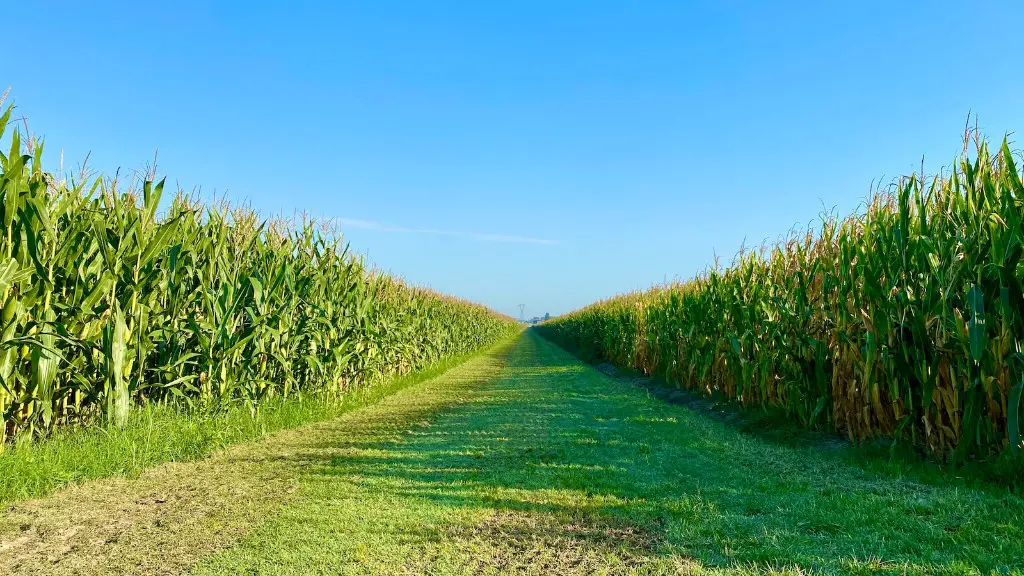Organic agriculture is a revolutionary concept with inventive and integrated solutions to environmental, economic, and social challenges. It is a holistic approach to production and marketing of agricultural products, which avoids the use of synthetic fertilizers, herbicides, and pesticides. Organic agriculture includes traditional methods, such as crop rotation and composting, as well as modern methods, such as biodynamic farming and conservation tillage. The impact of organic agriculture is far-reaching, with long-term benefits to people and the planet alike.
Organic agriculture is an essential part of sustainable development, as it helps reduce fossil fuel and chemical inputs while also increasing agricultural productivity, mitigating climate change and reducing environmental pollution. Organic farming systems comprise a variety of sustainable land management practices, such as integrated crop and livestock production, soil and water conservation, integrated pest management, and diverse cropping systems. Such practices can help provide food security and increase resilience to climate change for small-scale farmers.
Organic agriculture also has socio-economic benefits. It promotes rural and community development, ensures equitable access to natural resources, and fosters rural employment – especially for women and youth. By promoting organic production, processing, marketing and distribution, it helps bring a larger share of the economic value of agricultural products to communities. Organic agriculture also contributes to animal welfare, as it is based on principles, such as preserving the natural environment, promoting the use of traditional animal breeds and treating them humanely.
Organic agriculture is increasingly being embraced by small-scale and large-scale farmers, as well as retailers and consumers all over the world. It is essential to ensure access to nutritious and safe food and protect our natural resources and ecosystems.
Long-Term Benefits of Organic Agriculture
Organic agriculture has a number of long-term benefits that can be felt across the planet. It can significantly reduce the negative impacts of conventional farming systems, such as chemical runoff and erosion, which lead to soil degradation, air and water pollution, and the loss of biodiversity. Moreover, by managing soil fertility, organic farming improves the soil’s physical and chemical properties, which are essential for its fertility and productivity.
Organic agriculture also carries economic benefits, as it enables farmers to diversify their income sources by producing and selling a number of different crops. This diversification helps create a source of stability for farmers and their families in times of economic uncertainty. Organic farming is also more labor-intensive, which can lead to increased opportunities for employment.
Organic agriculture further helps reduce the dependence on synthetic inputs, such as chemical pesticides and fertilizers, which are expensive and often hazardous to human health and the environment. Organic production also reduces associated transport and energy costs, while reducing symptoms of environmental degradation and climate change.
Organic agriculture also helps build companies’ and nations’ capacity to stand resilient against environmental, financial and social shocks, while ensuring access to safe and nutritious food. It can also provide direct benefits to consumers, such as improved nutrition and taste, as well as wider environmental benefits, such as the reduction of green house gas emissions.
In sum, organic agriculture is an essential part of sustainable development, as it can help reduce fossil fuel and chemical inputs, increase agricultural productivity, mitigate climate change, and reduce environmental pollutants.
Consumer Benefits of Organic Agriculture
Organic agriculture offers many benefits to consumers that make it a desirable choice. Organic products are free from synthetic chemical residues, which can be linked to a number of health issues. Furthermore, organic products are often higher in nutritional value, as they not only have more vitamins, minerals and antioxidants but also contain fewer contaminants. Additionally, many organic products are certified to ensure the highest standards of production and labeling, offering the highest quality and traceability.
Organic products are also often GMO-free, meaning they have not been subjected to genetic manipulation. This allows consumers to know exactly what they are eating and provides the assurance that the food they buy comes from a healthy and sustainable source. Organic farming is also more animal-friendly, as it eliminates the use of antibiotics in livestock production, eliminates the use of growth hormones, and promotes humane animal husbandry practices.
Organic farming also carries direct economic benefits to consumers, such as value for money. As organic products are often more expensive, consumers are willing to pay a premium for the assurance of healthy, high-quality and safe food. Aside from the economic benefits, the fact that organic farming does not use synthetic inputs can offer intangible benefits, such as the assurance that the natural environment and its inhabitants are not negatively impacted.
Finally, organic agriculture helps create more sustainable communities, as it builds a more resilient food system and regionaleconomy, supports local businesses, and helps to conserve a range of ecological services. By supporting local farmers, families, and businesses, it helps to build a stronger community and economy.
Organic Farming and Climate Change
Organic farming can help mitigate climate change, as its practices reduce greenhouse gas emissions and increase soil fertility, thus increasing soil carbon sequestration. Moreover, by promoting crop rotation, organic farming helps to keep soils in good condition, improving their productive capacity and reducing emissions.
Organic farming can help manage water resources better via soil conservation and water storage. It also reduces the dangers of runoff and contamination from chemical inputs, thus protecting nearby water sources. Furthermore, by using local inputs, organic farming reduces transport costs and environmental damage caused by transportation.
Organic farming also helps increase biodiversity, as its practices encourage the growth of a variety of crops, plants and animals, which are essential for a healthy and sustainable ecosystem. Finally, organic farming aids in the conservation of land and regenerates damaged soils and ecosystems.
Organic Agriculture and Human Health
Organic agriculture is beneficial to human health, as it avoids the use of chemicals that can be hazardous and carcinogenic. By reducing chemical residues, organic farming eliminates the risk of contamination from pesticide residues, nutrient-deficient soils, and other pollutants. Moreover, organic agriculture can help maintain healthy balance between nutrients and chemicals, which can reduce the risk of allergies, and help to improve vitamin and mineral content.
Organic agriculture also reduces the risk of exposure to toxic chemicals, which can have serious long-term health impacts. Additionally, organic farming will help reduce malnutrition, as its practices will increase the availability and accessibility of healthy food for people in areas that lack access to nutritious food. This is due to its more environmentally friendly, sustainable, and equitable production methods.
Organic agriculture also helps preserve traditional agricultural methods, which are essential for preserving local cultures, traditions and knowledge. Thus, it enables the production of culturally diverse and high-quality foods, while also preserving traditional farming systems and practices.
Conclusion
Organic agriculture is a revolutionary concept with innovative and integrated solutions to environmental, economic, social and human health challenges. It has a number of long-term benefits across the planet, such as reducing chemical runoff, promoting rural and community development, increasing agricultural productivity, and providing better nutrition for consumers. Furthermore, it can help mitigate climate change, conserve water resources and biodiversity, and reduce exposure to toxic chemicals. Finally, it helps to protect local cultures, traditions and knowledge by preserving traditional agricultural methods.




